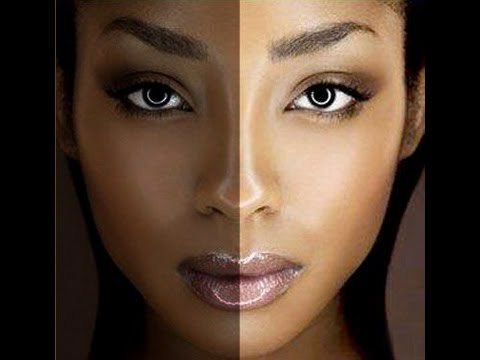The topic of skin lightening is definitely one which is addressed with strong feelings whether in support or distaste for such products. From a perspective of chemistry/chemical makeup of ingredients typically used in such creams, the analysis is clear; there is cause for concern; due to both acute and long-term heath effect stemming from prolonged applications.
When it comes to skin lightening products, solutions range from BB/CC creams to pills, and on the extreme end of the spectrum are concentrated lotions and mixtures used to permanently alter skin pigments; destroying the melanin used to naturally fight potential skin damage from sun exposure.
The active ingredient in some skin lighteners is mercury, and overuse of such products can lead to mercury poisoning. Mercury is a toxic agent that can cause serious psychiatric, neurological, and kidney problems. Pregnant women who use a skin lightener with mercury can transfer the mercury to their unborn child. The use of mercury as an ingredient in skin lighteners is banned in the U.S. However, some skin lighteners produced outside the U.S. may still contain this harmful chemical.
According to EWG‘s skin deep cosmetics database, skin lightening creams typically consist of potentially hazardous chemicals which include health concerns not limited to: endocrine disruption, contamination/irritation of skin, eyes, or lungs, non-reproductive organ system toxicity, bioaccumulation, biochemical or cellular level changes, cancer, enhanced skin absorption, and ecotoxicology.
Ingredients of concern include (but are not limited to): Hydroquinone, Propylparben, Diazolininyl Urea(formaldehyde releaser), Emulsifying Wax, Methylparaben, Kojic Dipalmitate (Kojic Acid Dipalmitate), Sodium Metabisulfite, PEG-40 Stearate, Tocopheryl Acetate, and Propylene Glycol.
Although chemically-laden manufactured skin creams pose potentially terminal health effect, similar results can be achieved through natural means. Natural skin toner alternatives include lemon or other citrus based mixtures.
For those who may be considering cosmetic procedures as those discussed above, it is imperative to follow up with a trained professional, and ensure full awareness of all potential concerns regarding all ingredients and/or processes involved.
Stay beautiful, inside and out.
